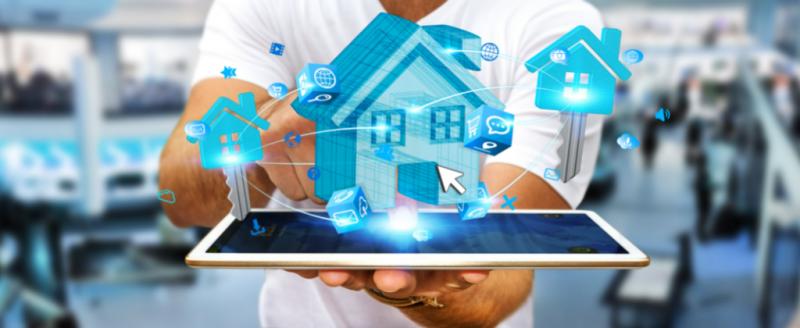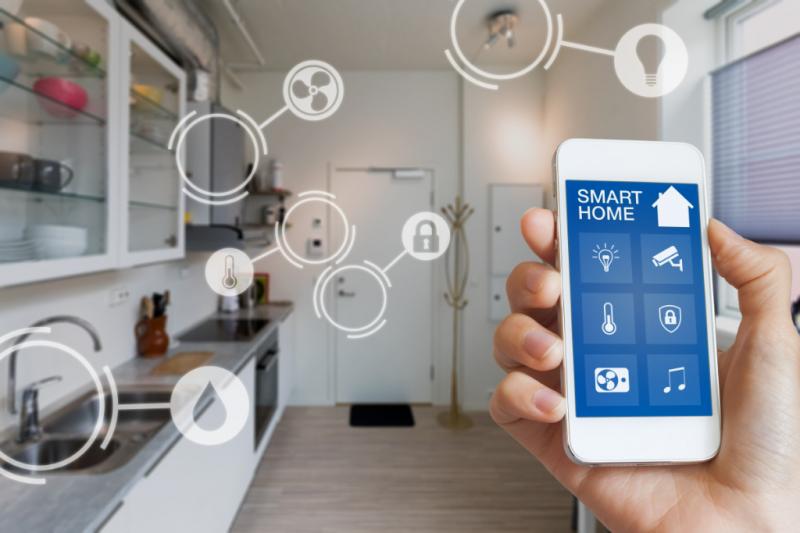IoT In The Apartment: A Brief Guide For Landlords

Investing in real estate properties is one of the more lucrative ways to earn. More and more people, especially millennials, see renting as a more viable choice than buying their own homes because of inflation rates.
Whether you invest in long-term or short-term rentals, one crucial thing to remember is that you attract more quality tenants when you practice a preventive mindset rather than sticking to the 'if it ain't broke, don't fix it’ mantra.
This is where technology, specifically Internet of things (IoT), can help you mitigate any problem before they become severe enough that your tenants start complaining or, worse, start leaving. Perhaps, it's time to update some features of your rental properties to attract more tenants.
If you're interested in improving your rentals, this article discusses how you can effectively utilize IoT as an apartment landlord. Read on!
Why IoT
IoT devices can help you optimize your working process and help prevent issues from blowing up. IoT is, basically, a collection of different devices connected to a network through Wi-Fi, Bluetooth, or near-field communication (NFC). Smart devices, like your smartwatch or smart printers, are just some of the IoT devices commonly used today.
How It Can Help You
It's easy to monitor and fix any problem when monitoring just a handful of properties in the same area. But, what if your business has grown so much that you now handle properties scattered in different towns or even buildings under your helm?

Here are some ways IoT devices help you do your job as a landlord:
- Optimize Consumption Of Resources
One way to improve your profitability is to look for ways to reduce the cost of using water and electricity. Reducing energy and water use can be very beneficial for landlords who don't include water or electricity consumption fees in the rent.
Some ways to optimize the usage of resources in your rentals can include:
- Using programmable LED lights that automatically switch on and off during specific times
- Installing smart heating, ventilation, and air-conditioning (HVAC) systems, you can control and set the temperature based on weather patterns, time of day, or usage
- Connecting energy monitors to different parts of your building or property to ensure there are no faulty wires that can cause inefficient electricity consumption
- Maximizing automated irrigation systems that’ll measure the amount of moisture in the soil or weather patterns first before switching to garden sprinklers
- Integrating all IoT devices into one system in the cloud that monitors, collects, and gives an analysis, like WideSky for Buildings, to ensure your decisions are based on hard facts.
- Property Security
Whether you have a short-term or long-term rental, tenants look for properties that offer safety and security.
Examples of smart devices you can use to secure your property include:
- Smart sensors that send notifications in case of a broken window or leaky pipes
- Doorbell with camera, which you can use as a two-way communication device while giving you access to a real-time video feed, and may even have the feature of storing several hours' worth of footage to a cloud storage
- Smart locks, in place of mechanical deadbolts, can track anyone who enters the premises
- Smart plugs you can access through your mobile phones that can help switch off devices remotely to avoid electrical issues
- Smart locks you can change remotely by assigning a new password, so old tenants lose access to the property
Convenience Comes With A Cost
One of the factors that cause resistance to adopt new technologies is the cost of buying the needed hardware and installation. The rate of technology change is exponential; thus, it's not surprising how quick companies manufacture newer versions of devices in a year. For the landlord, this can mean buying new versions of the devices every year, which can be equated to more expense than profits.
Jumping on the path to future-proofing your rental properties is best done with specialists in your team. Reaching out to experts will empower you in determining which type of IoT system is appropriate for the property you manage, be it apartments, large houses, or buildings.
Some Caveat On IoT Systems
Using IoT devices come with come some caveat. IoT devices pose a couple of issues you may want to address early on before a tenant signs a contract with you. First, IoT systems can be seen as a threat to tenants' privacy. Potential privacy issues may arise from being hacked by someone from the Internet, or by a person in authority who exploits the use of these devices.
Another concern tenants may raise is about the level of control a landlord has over the property. As a landlord, it's best to be transparent about the boundaries of your control, the type of IoT device they should expect, and which parts of the rentals these security devices are installed.
It's always best to build a tenant-landlord relationship on trust, so it's up to you to clearly communicate why you've opted to use these smart devices on your property.
More to Read:
Previous Posts:











